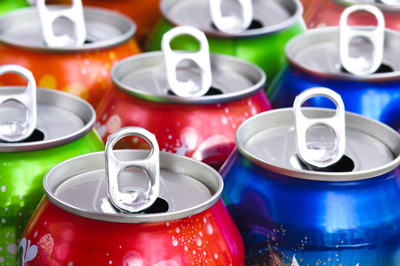Mexico sugary drinks tax linked with 12% cut in sales after one year
- Like
- Digg
- Del
- Tumblr
- VKontakte
- Buffer
- Love This
- Odnoklassniki
- Meneame
- Blogger
- Amazon
- Yahoo Mail
- Gmail
- AOL
- Newsvine
- HackerNews
- Evernote
- MySpace
- Mail.ru
- Viadeo
- Line
- Comments
- Yummly
- SMS
- Viber
- Telegram
- Subscribe
- Skype
- Facebook Messenger
- Kakao
- LiveJournal
- Yammer
- Edgar
- Fintel
- Mix
- Instapaper
- Copy Link
Posted: 11 January 2016 | Victoria White | 3 comments
A study has found that a 10% tax on sugar sweetened drinks in Mexico was also associated with an overall 4% increase in purchases of untaxed beverages in the first year of implementation…


A study, published by The BMJ, has found that a 10% tax on sugar sweetened drinks in Mexico was associated with an overall 12% reduction in sales and a 4% increase in purchases of untaxed beverages in the first year of implementation.


The findings have important implications for policy discussions and decisions, say the researchers.
From 1 January 2014, Mexico implemented an excise tax of 1 peso per litre on sugar sweetened drinks. To evaluate the effect of this tax, researchers based in Mexico and the USA studied differences in purchases of sugary drinks before and after implementation. Using nationally representative food purchase data from over 6,200 Mexican households across 53 large cities above 50,000 inhabitants, they compared predicted volumes of taxed and untaxed beverages purchased in 2014 (post-tax period) with the estimated volumes that would have been expected without the tax, based on pretax trends. A statistical model was used, which adjusted for several influential factors, including age and sex of household members and socioeconomic status (low, middle, and high), and other contextual economic factors such as employment and salaries where people lived.
[polldaddy poll=”9268349″]
The average urban Mexican purchased 4.2 fewer litres of taxed beverages
Purchases of taxed beverages decreased by an average of 6% in 2014 compared with expected purchases without the tax. Furthermore, these reductions became larger over time, reaching a 12% decline by December 2014. In other words, during 2014 the average urban Mexican purchased 4.2 fewer litres of taxed beverages than expected without the tax.
In contrast, purchases of untaxed beverages were 4% higher than expected without the tax, mainly driven by an increase in purchases of bottled plain water. This translates to the purchase of 12.8 more litres of untaxed beverages by the average urban Mexican over 2014 than expected.
All three socioeconomic groups reduced purchases of taxed beverages, but the reduction was greatest among households of low socioeconomic status, averaging a 9% decline during 2014 and reaching a 17% decrease by December 2014 compared with pretax trends.
The researchers emphasise that this is an observational study so no definitive conclusions can be drawn about cause and effect. They also point to some study weaknesses, such as incomplete data on dairy beverages and their focus on Mexican cities. Nevertheless, they conclude that this short term change “is moderate but important” and they say continued monitoring is needed “to understand purchases longer term, potential substitutions, and health implications.”





I guess a sugar tax is better than nothing – although that still leaves a major problem. The reality is we need to stop people having a ‘sweet tooth’. Diet drinks are as bad, if not worse, than cans full of sugar. The artificial sweeteners used are not healthy and widely regarded to encourage a ‘sweet tooth’ – so consumers either seek sugar elsewhere or consider it an excuse to consume sugar in other products.
Like the plastic bag 5p charge in the UK, it would get people thinking. I think a small tax (say 10p) will at least encourage people to think about what they are eating to a degree and reduce the obesity rate. If a tax rate is agreed, I’d like to see it come off another area, say petrol.
If you’re going to start taxing high sugar drinks, then you’re going to have to start taxing everything that has a health risk to humans. This is just another way for Governments to gain more revenue from every avenue possible!